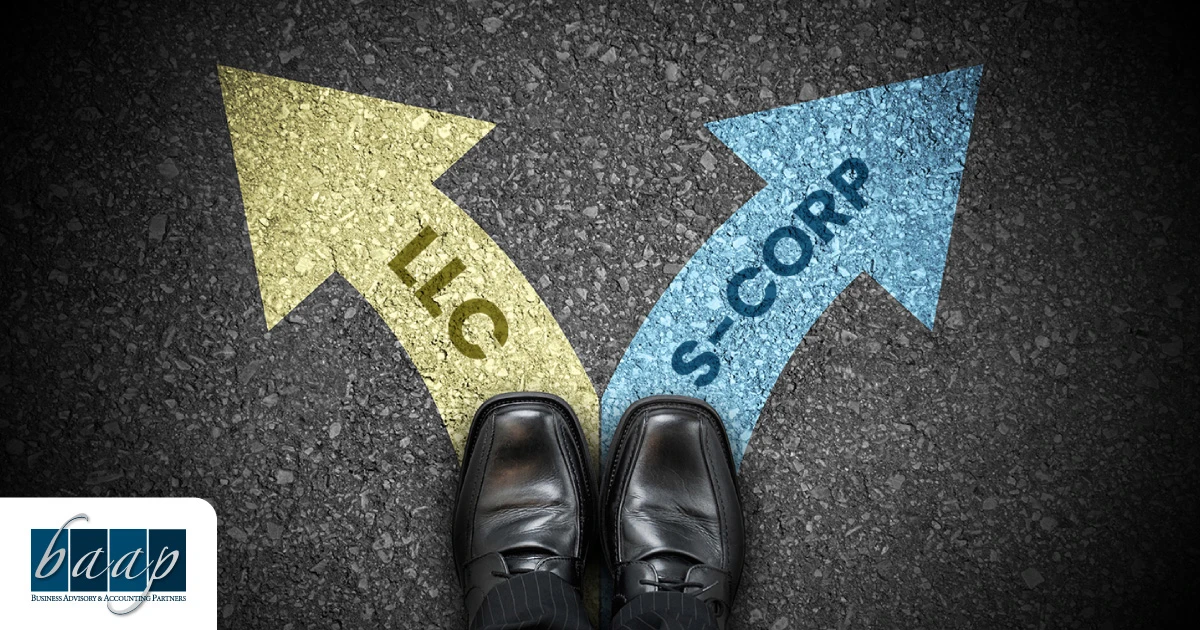
When it comes to running a small business, success is often determined not only by revenue but by how well you manage taxes and financial structures. Many entrepreneurs unknowingly overpay in taxes simply because they don’t have the right business entity in place. The truth is, the tax code isn’t designed to favor business owners—but with the right business advisory, you can tip the scales back in your favor through smart tax planning and a proactive approach to entity selection.
In this blog, we explore why choosing between an S-Corp or LLC, and understanding how to minimize self-employment taxes, can dramatically improve your business’s financial management and tax efficiency.

One of the first, and most critical, decisions a business owner makes is choosing the right entity structure. Whether you're launching a new venture or acquiring an existing one, this decision sets the tone for how your income is taxed, how much paperwork you manage, and how well you're protected legally.
From a business advisory standpoint, the structure that offers the most tax efficiency for an operating company is often an S-Corp, or more commonly, an LLC taxed as an S-Corp.

An S-Corporation allows business owners to split their income into two parts:
This structure can potentially save business owners up to 15.3% in self-employment taxes on the distribution portion. However, it’s not for everyone—it works best for businesses with consistent profitability and active owner participation in operations.
💡 CPA Insight: “If you’re profitable and not structured correctly, you could be overpaying thousands in unnecessary taxes each year,” says Mark Martukovich, a seasoned business advisor.
While the S-Corp provides powerful tax benefits, many advisors recommend starting with an LLC for its simplicity, flexibility, and legal protection. The bonus? An LLC can later elect to be taxed as an S-Corp, combining the best of both worlds.
Benefits of an LLC taxed as an S-Corp:
This structure is often the most efficient setup for service-based businesses, consultants, and independent contractors seeking to optimize tax outcomes while keeping operations simple.
One of the most frequently asked questions in tax planning is: “How can I minimize self-employment taxes?”
Here’s how it works in an S-Corp or LLC taxed as an S-Corp:
For example, if your company nets $200,000 and you pay yourself a $100,000 salary, the other $100,000 can be distributed to you free of payroll taxes—as long as your compensation is defensible to the IRS.
💡 Proactive Planning Tip: Your CPA can help benchmark salaries and document responsibilities to lower your audit risk while maximizing savings.

The biggest mistake small businesses make? Waiting until tax season to make decisions. The best results come from a proactive approach, working with a CPA who understands your industry and tailors a strategy that supports growth, compliance, and cash flow.
With the right entity structure and consistent review of your financial management, you can:
Choosing the right structure—whether it’s a standalone LLC, an S-Corp, or a hybrid of both—isn’t just about reducing taxes. It’s about laying a solid foundation for long-term business success. With expert business advisory, small business owners can avoid costly mistakes, stay compliant, and reinvest more back into their companies.
👉 Need help reviewing your entity structure or planning for tax season? Partner with a CPA team that puts strategy, compliance, and savings at the heart of your business.